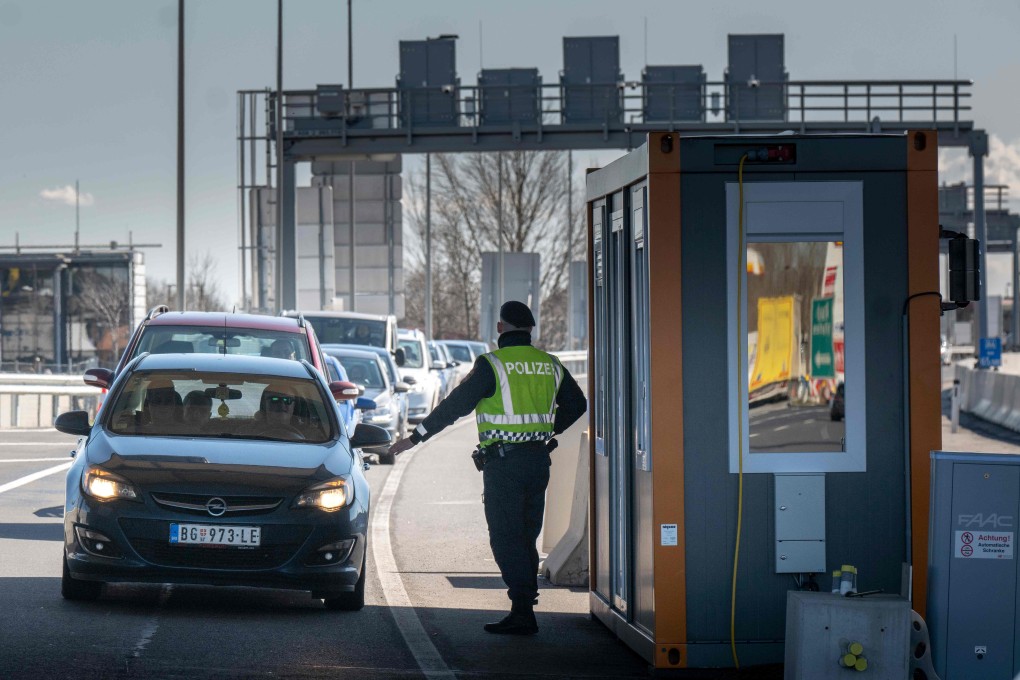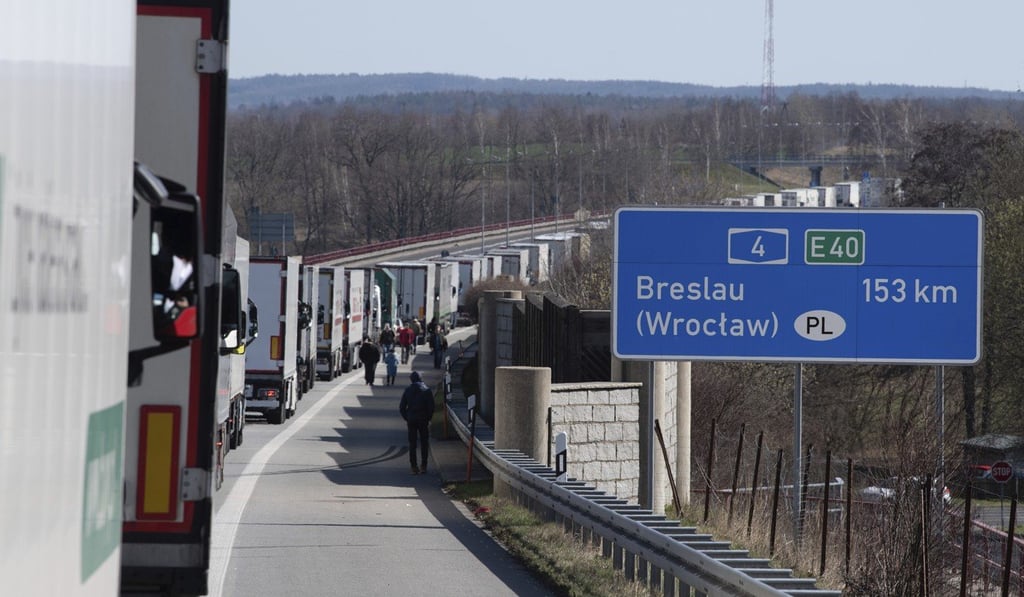Coronavirus: Europe to shut border for a month as France braces for a 15-day lockdown amid coronavirus pandemic
- Under the European Union’s proposal, non-EU citizens would be barred from entering the Schengen border-free travel region for 30 days
- French President Emmanuel Macron declares ‘we are at war’ with the virus and orders all of the nation’s residents to stay home for 15 days

Europe plans to shut its border to the rest of the world for a month, the European Commission announced on Monday in an unprecedented escalation of the response to the Covid-19 pandemic.
Under the European Union’s proposal, which requires tentative approval by all member states on Tuesday, non-EU citizens will be barred from entering the Schengen border-free travel region for 30 days.
The move comes as the outbreak shows no sign of slowing down across the continent, which accounts for nearly a third of all 164,000 known infected cases globally, according to World Health Organisation statistics.
France, Germany and Britain have stepped up their restrictions on social activities, with France expected to go into a 15-day lockdown starting on Tuesday.

Italy, the second hardest-hit country after China, has said it needs a reconstruction plan after the outbreak; Spain is in lockdown mode with the number of cases nationwide approaching 10,000.